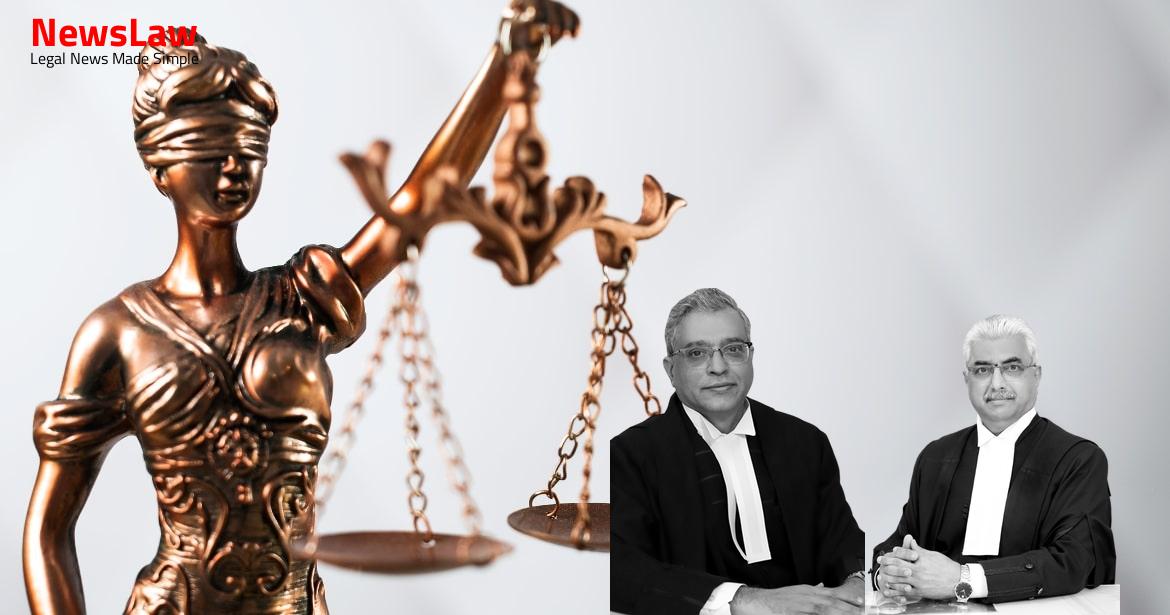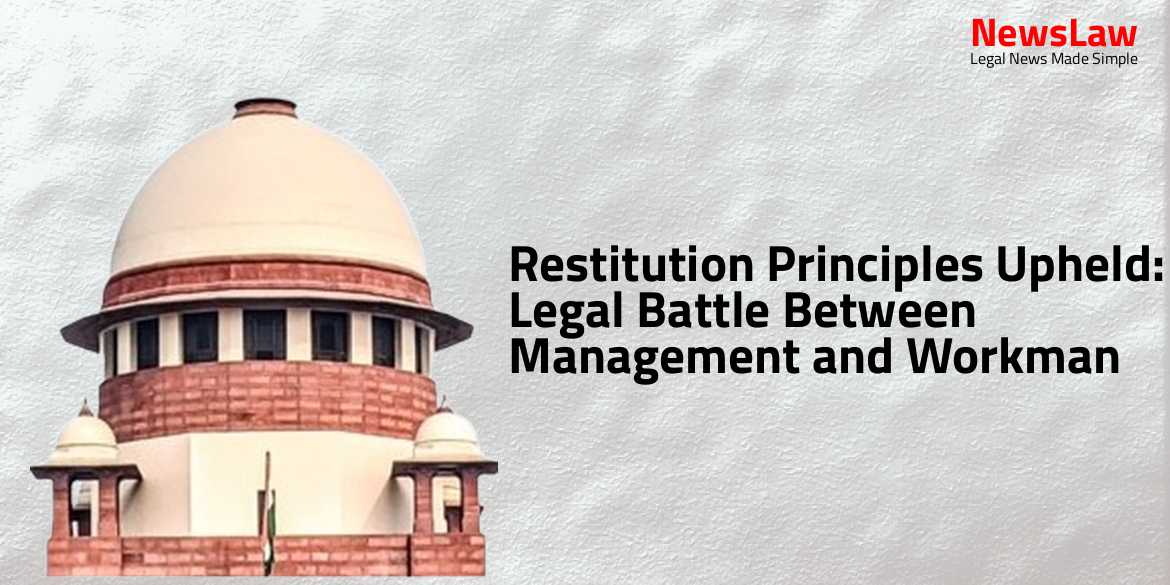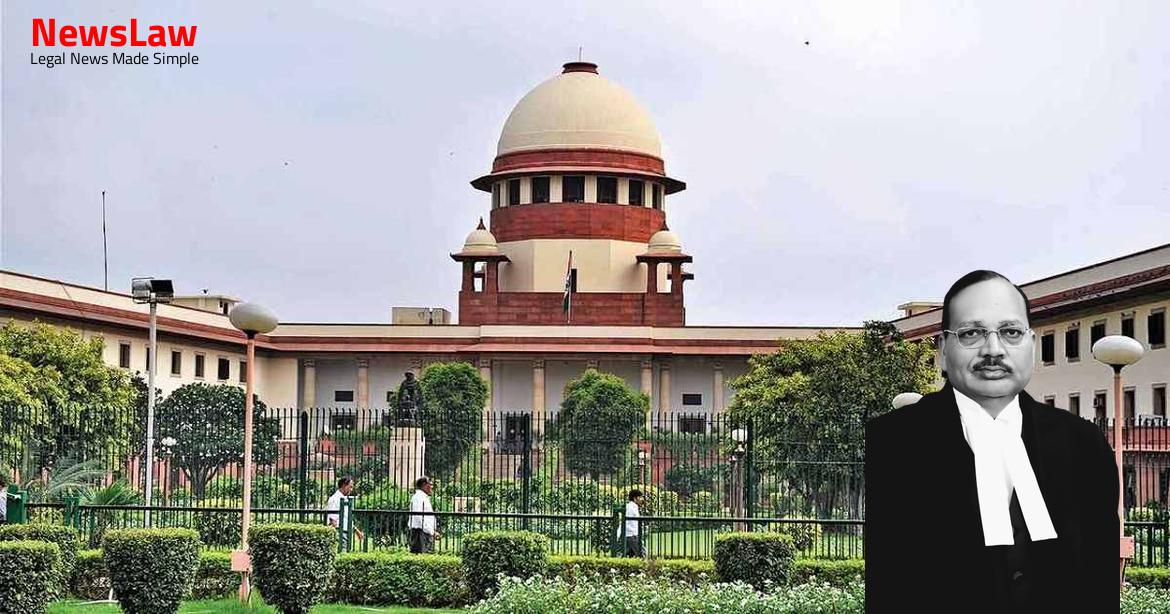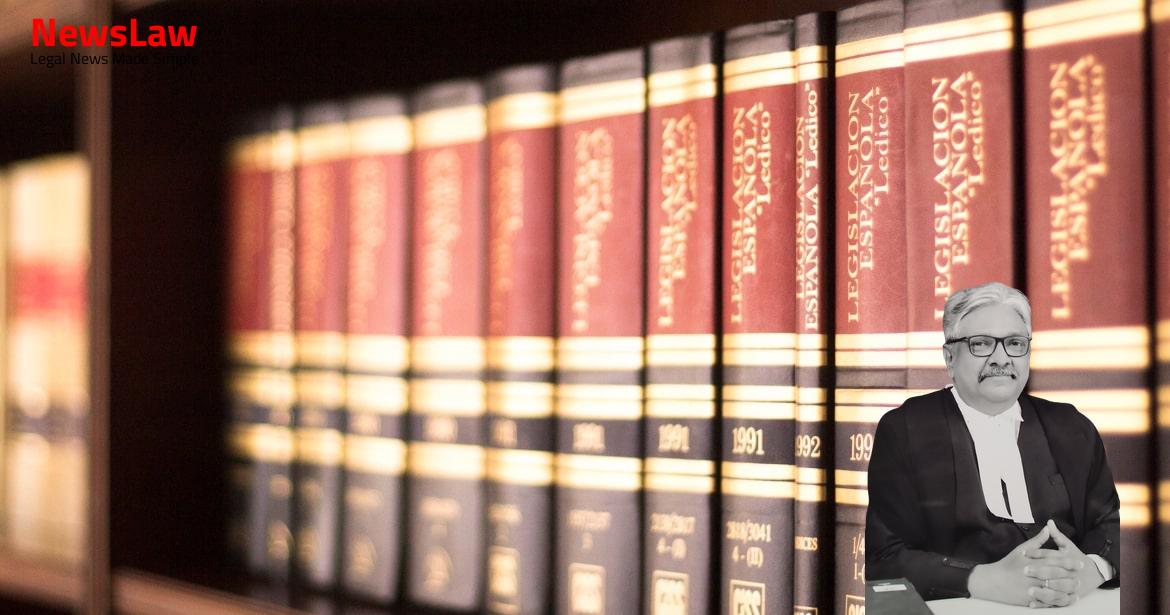Delve into the realm of judicial review in educational matters with a recent court judgment that sets a precedent for administrative actions in appointment processes. The court’s legal analysis in this case sheds light on the importance of upholding constitutional principles in the face of arbitrary administrative decisions. Follow along to understand the complexities of the law in educational contexts.
Facts
- The appellant sought appointment as a primary school teacher.
- Appellant’s appeal was based on Clauses 14 and 19 of the vacancy circular.
- The Division Bench of the High Court of Delhi dismissed the writ appeal filed by the appellant.
- The writ appeal was against the order of the Single Judge who dismissed the appellant’s writ petition.
- Final selection was to be made after conducting interviews of qualified candidates.
- Appellant and respondent no. 3 received different total marks in the selection process.
- Respondent no. 3 received 7 marks for holding a professional qualification in Masters in Education.
- Appellant has no issue with respondent no. 3 receiving additional marks for the qualification.
- On 27.04.2016, the Institute changed the selection process by eliminating interviews and focusing on allocation of marks for qualifications, experience, and written test.
Also Read: Scope of Rule-Making Power in Disciplinary Proceedings
Arguments
- The appellant argued that the denial of 6 marks for his PG Degree qualification was illegal and arbitrary.
- He made a representation for the allocation of 6 marks, which was denied, leading him to approach the Delhi High Court through a writ of mandamus.
- The High Court refused to interfere based on the principle that qualifying criteria in academic matters should be left to the discretion of the institution.
- The appellant then filed a Writ Appeal, which was also dismissed following the same principle.
- The High Court cited Clauses 14 and 19 of the vacancy circular to support the Institute’s right to shortlist applications as it deems appropriate.
- The appellant contended that denial of 6 marks based on his PG Degree not being in the ‘relevant subject’ was illegal and arbitrary.
- He believed that if he had been awarded these 6 marks, he would have been the highest scorer with a total of 63.5 marks.
- Hence, the appellant approached the Court in 2019 seeking redressal.
Also Read: Conviction and Sentencing Analysis in a Criminal Appeal Case
Analysis
- Minimum qualification does not guarantee being called for further recruitment process.
- Institute reserves the right to shortlist applications as deemed appropriate.
- No reasons for rejection will be communicated to applicants.
- No claim for fee refund will be entertained.
- The standard argument made consistently and successfully before the Single Judge and Division Bench must fail before us.
- Our duty is to ensure that the primary duty of constitutional courts remains the control of power, including setting aside of illegal or arbitrary administrative actions.
- The issue at hand in this case pertains to the allocation of marks for additional qualifications, with 10 marks being prescribed.
- The closure of the school on 01.04.2023 means that directing the respondent Institute to employ the appellant as a primary school teacher is not feasible.
- The decisions of the Single Judge and Division Bench are deemed unsustainable and are hereby set aside.
- In public law proceedings, courts must not dismiss writ petitions due to perceived futility arising from the passage of time.
- The High Court is obligated to examine issues of arbitrariness in executive actions while exercising judicial restraint in academic matters.
- Appellant’s case has been contested since 2017 like the legendary Vikram.
- Institute directed to pay Rs. 1,00,000/- as compensation within six weeks.
- Judgments of the High Court and L.P.A. set aside.
- Cost quantified at Rs. 25,000/-.
- Exploration of possibility of directing Institute to appoint appellant as a primary teacher in another school.
- Action of respondents set aside as illegal and arbitrary.
- Alternative restitutory measure considered due to the primary school being closed since 2023.
Also Read: Legal Analysis of Circumstantial Evidence in a Murder Case
Decision
- The Court found that the Respondent failed to comply with the obligations under the RPC agreement.
- The Court held that the Respondent’s actions constituted a breach of the RPC agreement.
- The Court ordered the Respondent to pay damages for the breach of the RPC agreement.
- The Court granted injunctive relief to prevent further violations of the RPC agreement.
Case Title: MANOJ KUMAR Vs. UNION OF INDIA (2024 INSC 126)
Case Number: C.A. No.-002679-002679 / 2024



